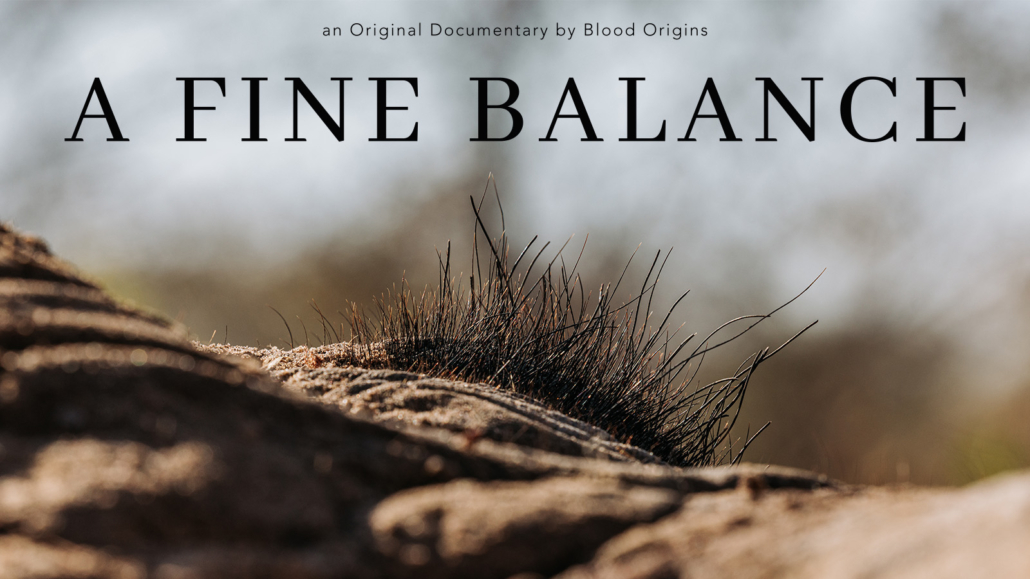A Fine Balance: A Story of Elephants, People, and Perspective
For many Westerners, “elation” is not the word that comes to mind when they hear “elephant hunting.” But for villagers who rely on hunting to survive, that’s exactly what it brings. It’s not just food—it’s nourishment in a place where protein is scarce. It’s how they make money, keep jobs, and can afford to send their children to school.
Yet this deeply practical relationship between people and elephants is also where the conflict begins. In Botswana—home to the world’s largest elephant population—humans and wildlife increasingly compete for the same space, often with deadly consequences. In 2014, the government banned elephant hunting, hoping tourism alone could replace the revenue. But as A Fine Balance – A Botswana Elephant Documentary by Blood Origins, reveals, the reality on the ground was far more complicated.
Botswana’s elephant population is estimated between 130,000 and 180,000—by far the largest in Africa. In comparison, Zimbabwe holds around 100,000 elephants, Tanzania about 60,000, Kenya approximately 35,500, and South Africa around 24,000. Botswana’s role in hosting and conserving the continent’s elephants is unmatched.
A Fine Balance follows what happened in the years after the ban—and what changed when it was lifted in 2019. Photographic ecotourism was expected to fill the void, but many communities were left without alternatives. As elephants encroached on villages, the consequences became more than just economic—they became deeply personal.
Rather than pose a single question about whether hunting and conservation can coexist, the film invites viewers into a broader conversation—one grounded in the voices of those most affected. Told in four parts, the documentary follows Robbie Kroger, Executive Director of Blood Origins, as he travels across Botswana: from villages navigating the fallout of the ban, to remote landscapes ecotourism can’t reach, to communities where hunting remains essential, and finally to a place where hunting revenue supports conservation. The result is a raw, eye-opening journey that challenges assumptions and gives voice to those living with elephants, not just advocating for them.
As Kroger explains, “When trying to show something as controversial as elephant hunting, the only way to be as authentic as possible is to hear from the people on the ground affected by it.” That authenticity runs through every frame. The film isn’t trying to persuade—it’s trying to let people speak.
One of the film’s most compelling chapters focuses on the limits of ecotourism—particularly in remote areas of Botswana where roads are impassable, infrastructure is nonexistent, and tourists simply don’t come. In those places, hunting remains the only viable source of revenue. But A Fine Balance doesn’t dismiss ecotourism—it shows how, when supported by hunting income, it can flourish. In the film’s final chapter, viewers see how regulated hunting contributes directly to infrastructure, conservation, and birdwatching sanctuaries.
At the heart of the film are stories often missing from global conservation discourse. We hear from a young boy who lost his father to an elephant, a farmer struggling to keep his crops alive, and the Chief of Sankuyo village who says, “Life has changed for the better,” when reflecting on Mababe, where elephant hunting has returned. These villagers view the return of elephant hunting not as celebration, but as a means of survival. Their stories are layered with grief, resilience, frustration, and yes—elation. Not because an elephant has died, but because a community can live.
A Fine Balance goes beyond the bounds of a typical educational documentary. It takes viewers on a seamless journey through raw, unscripted emotion and personal experience. While Blood Origins is a global nonprofit whose mission is “to convey the truth about hunting and promote conservation efforts,” the film itself doesn’t feel like a campaign piece. In fact, it rarely focuses on hunters or hunting at all. As a hunter myself, I expected more about where hunting dollars go—how those funds support conservation and what hunters contribute. But that’s not the story this film is trying to tell. It isn’t until the final chapter that we even witness a glimpse of a hunt. Instead, the focus stays with the communities, their voices, and the difficult realities they face.
Visually, the film is striking. The cinematography respects the landscapes, the people, and the moments it captures—allowing viewers to absorb the reality without distraction. There’s no sensationalism, no dramatic over-editing. Just honest, steady storytelling. It’s filmed with restraint and clarity, letting the emotion come from the people, not a camera’s manipulation.
A Fine Balance seeks to show the delicate and complex relationship—hence its name—between people and elephants. It invites viewers into a conversation that’s often oversimplified or misunderstood, especially by those of us far removed from the daily reality of living alongside elephants. Whether you’re a hunter, a non-hunter, a conservationist, or simply curious about why elephant hunting matters, this film challenges you to look beyond headlines and into the lives of the people most affected. It helps us understand that when it comes to hunting and photographic tourism, it’s not one or the other—it’s the coexistence of both that proves sustainable. I walked away with a deeper understanding of the complex relationship between humans and wildlife—one where survival, ethics, and tradition intersect.
As Kroger puts it, “We set out to produce a very balanced piece—balance of showing hunting and ecotourism, balance of managing elephants, balance that isn’t pro hunting but rather pro the benefits that came from elephant hunting. I think we did it.”
I would agree.
I’d encourage viewers to watch A Fine Balance with an open perspective—and to hear from those who understand elephant hunting best: the people most impacted by it.
To watch the full story click here.



